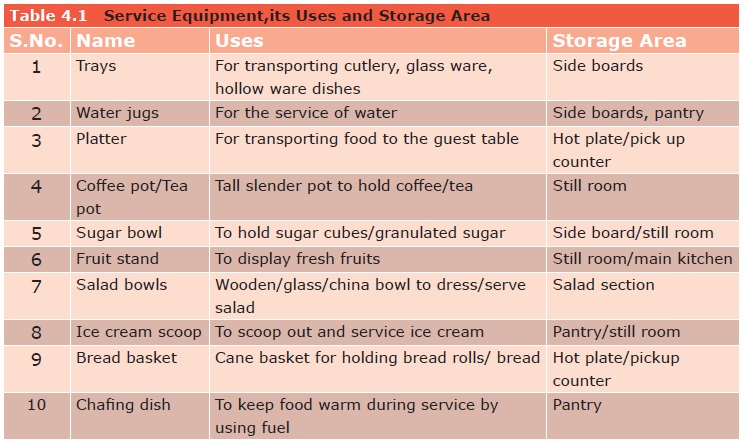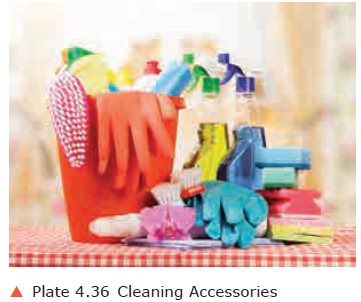Chapter: 11th Food Service Management : Chapter 4 : Food Service Equipment
Care, Maintenance and Sanitation of Equipment
Care,
Maintenance and Sanitation of Equipment
All equipment large or small,
heavy or light requires care in handling to extend its life to maximum and to
minimize depreciation and maintain in a reason-ably attractive and efficient
condition while in use.

General Care of Equipment is Given Below:
·
Keep all
equipment clean
·
Wash
removable parts of equipment with suitable detergent and hot water after each
use. After washing, wipe equipment completely dry before replacing.
·
Check
that all pieces are in working order.
·
Close
supervision at work is necessary to ensure careful handling.
·
Repairs
must be attended without delay to prevent damage.
·
A weekly, fortnightly or monthly pro-gramme for
oiling on servicing the equipment to maintain movable parts or machinery in
order is important.
·
All the electrical inputs to the equip-ment should
be checked periodically to ensure the proper electrical load is available for
efficient functioning.
·
Insulations, plumbing and other connec tions need
periodic check to keep equip-ment running at optimum efficiency.
·
Make full use of warranty periods to help and train
organisation staff to learn regular maintenance procedures from the
manufacturers and engineers.
·
Assign
the care of each machine to one responsible person. Money, time and effort
spent on care helps to maintain equipment in continuous working order.
1. Equipment Cleaning
·
All
equipment coming in contact with food should be kept clean.
·
They
should be scrubbed, cleaned with detergent and rinsed with potable water.
·
Dipped in
hot water at least for 30 sec-onds and then dry.
·
Parts of
blender and mixers should be inspected after cleaning.
·
Use
separate cutting board for different foods (for vegetarian and non vegetarian)
·
Prepare
raw food in separate area.
·
Clean and
sanitize equipment, utensils, work space after preparing each food.
·
Use
specific containers for various food products
·
Use clean
cloth or paper towel for wip-ing spills
2. Preventive Measures to Exclude Entry of Insects
Filling cracks and fissures in the walls and flooring
·
Covering drain holes, with wire gauze
·
Spraying or dusting with pesticide
·
Fumigation
in large godowns.
3. Cleaning Tools
Sanitation is a quality aspect that requires alert vigilance. It limits
possible exposure to contamination.
Food service equipment of var-ious qualities are available to meet the
requirements of different styles of cater-ing operations. The menu forms the
basis for identifying the requirement of service equipment. Though different
types of service equipment may be procured for dishes and drinks offered for
sale, using multipurpose equipment not only saves money but also reduces
storage space and maintenance cost. Purchasing of equip-ment is a managerial
activity which calls for careful and wise decisions since it involves major
capital investment. Every piece of equipment chosen must be justi-fied and it should
not remain idle.
![]()
Equipment must be maintained and
handled carefully since poor han-dling leads to additional costs. Adequate
training should be imparted to employee for proper handling of equipment. Too
much of stock occupies more storage and involves additional cost and too less
of it affect the operational efficiency. Hence it is important to strike a
balance between these two and have just the right amount of service equipment.

All equipment must be left clean
after use. When sanitation of equipment is not effective in food production and
while serving, food poisoning and food infections might occur and food service
will lose its customers. Hence cleaning and sanitation operation should be
verified on regular basis and it forms an important step in food service.
Related Topics